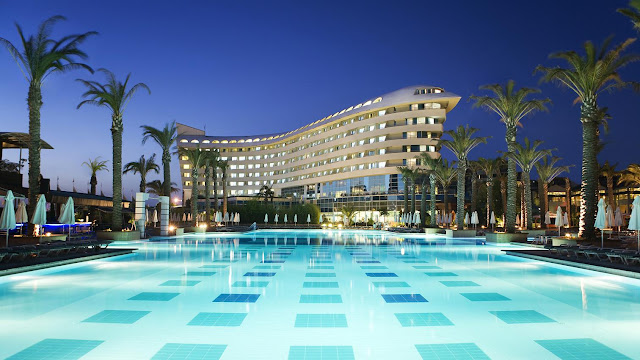The Rough Guide to Turkey
Introduction
Turkey has multiple identities. Poised between East and West, it’s a place
where mosques coexist with churches, and Roman remnants crumble
alongside ancient Hittite sites. The country is politically secular, though the
majority of the population is Muslim, and it’s an immensely rewarding place
to travel, not least because of the people, whose reputation for friendliness
and hospitality is richly deserved.
Much of the country’s delights are
inexpensive pleasures. Whether it’s
indulging in tasty gözleme pancakes or
dancing in backstreet bars, there are
plenty of activities to consume your time
but not your budget.
Most visitors begin their trip in İstanbul,
a heady mixture of European shopping
districts, Ottoman architecture and
Anatolian cultural influences. South from
here are small country towns swathed in
olive groves and several ancient sites,
most notable of all Ephesus. Beyond the
functional city of İzmir, the Aegean coast
is Turkey at its most developed, with large
numbers drawn to hedonistic party resorts
such as Bodrum and Marmaris. Beyond
here, the aptly named Turquoise Coast is
home to resorts such as Fethiye and Kaş,
famous for their fabulous water- and
adventure-sports facilities. Further inland
is spectacular Cappadocia, with its
well-known rock churches, subterranean
cities and landscape studded with cave
dwellings. Further north, Ankara, Turkey’s
capital, is a planned city whose contrived
Western feel gives some indication of the
priorities of the modern Turkish Republic.
Further south, Konya is best known as the
birthplace of the Sufi sect.
ARRIVAL AND DEPARTURE
Tourist visas (€15–45 depending on
nationality) are required for individuals
from most countries and can be got upon
arrival. You’ll need to pay cash and queue up before joining the queue for passport
control. Visas usually last for three months
and enable visitors to travel between
Turkey and neighbouring countries.
The most common point of arrival is
İstanbul, with overland travellers arriving
at the bus station some distance from the
centre. International flights to İstanbul
arrive at either Atatürk Airport (Wataturk
airport.com) on the European side or
Sabiha Gökçen (Wsgairport.com), used
by many budget carriers, on the Anatolian
side. For those heading to Turkey’s
Turquoise Coast, Antalya’s international
airport is the most convenient for the
region’s many resorts. If you’re travelling
to Turkey by sea you’re likely to arrive at
either Kuşadasi or Marmaris where ferries
connect Turkey with the Greek islands.
ACCOMMODATION
Finding accommodation is generally no
problem, except in high season in
İstanbul, at the busier coastal resorts and
in the larger towns. Basic ungraded hotels
or pansiyons (pensions) offer fairly spartan
rooms, with or without bathroom, for
€40–70. There’s also a well-established
network of backpacker hotels that
generally cost €10–20 for a dorm bed,
€50–70 for a private double room
(€10–20 less if there’s no bathroom).
You’ll also find triple and quad rooms
offered at attractive rates at most hotels.
Many resort-based places close in winter,
so it’s wise to call ahead. Almost
everywhere offers wi-fi and a/c in each
room, and, unless otherwise indicated,
includes a Turkish buffet breakfast in the
price. Campsites are common only on
the coast and in national parks and cost
around €8–13 per person,
find cheap hotels in turkey.
CULTURE AND ETIQUETTE
Turkey’s unspoken codes of conduct can
catch the first-time visitor off guard.
Away from the main cities you should
dress modestly and avoid shorts and
revealing attire – this is particularly
important the further east you travel.
If you are a female traveller, it is essential
to take a headscarf or shawl if you plan
on visiting a mosque. These are generally
open during daylight hours, except
for prayer time (around half an hour
following the call to prayer). Both sexes
should remember to remove their shoes.
In almost every sphere of social
interaction, tea drinking plays an
important role. You’ll notice shop
salesmen commonly invite you to peruse
their goods over tea.
Although interaction between Turkish
men and women is quite formal, single
female travellers may experience
harassment and should take care.



